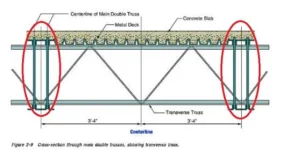WTC7 has always interested me the most as well--purely as an academic matter. If and when the report comes out, do post a link.
I was going to mention that years ago I read a whitepaper put out by a structural engineer at MIT who considered the problem: "As a matter of mathematical modeling, how quickly would a skyscraper collapse once an upper floor lost structural integrity?"
I found it lucid and expertly constructed. The conclusions were twofold: that once the collapse started, the speed of the collapse would be nigh indistinguishable from freefall (I can't recall the exact difference in timing, but it was on the order of milliseconds); and that buildings the size of the twin towers would be expected to 'pancake' (i.e. collapse neatly into their own footprints) within very narrow margins. That is, unlike smaller buildings, the towers wouldn't be able to tilt more than (I believe) 2° while standing or collapsing, and there was no particular impetus for them to tilt at all.
It impressed upon me the importance of turning to the equations, which often yield counterintuitive yet correct conclusions.
I've never seen the sense in the "controlled demolition" theory of the twin towers, even disregarding the logistical challenges. One of the things I do like about conspiracy theories like "9/11 inside job", however, is that they're one of the few instances where I see laypeople online researching, hypothesizing, debating, learning, and talking about big ideas. As I see it, whether the theories are correct, partially or entirely, is ancillary. We're never going to be able to prove any of them to an extent they become politically actionable. The value is in the pursuit of truth.




